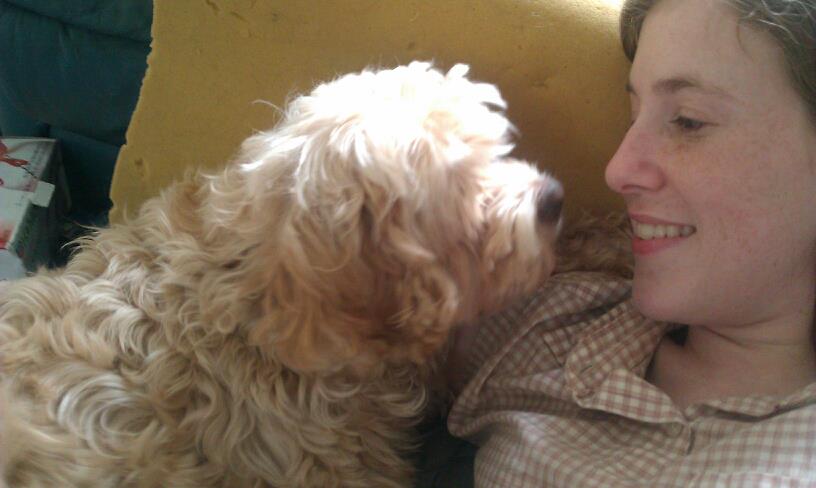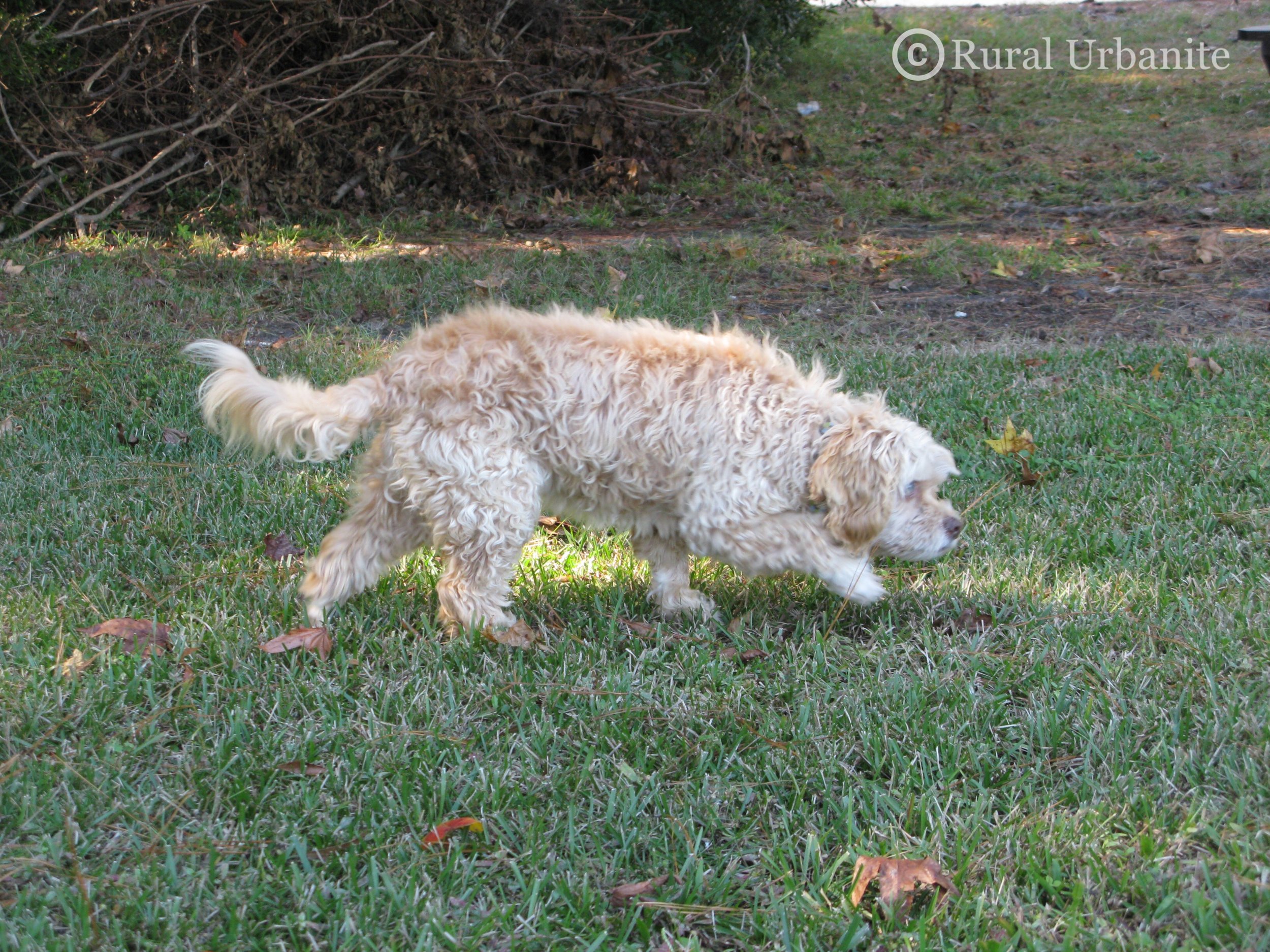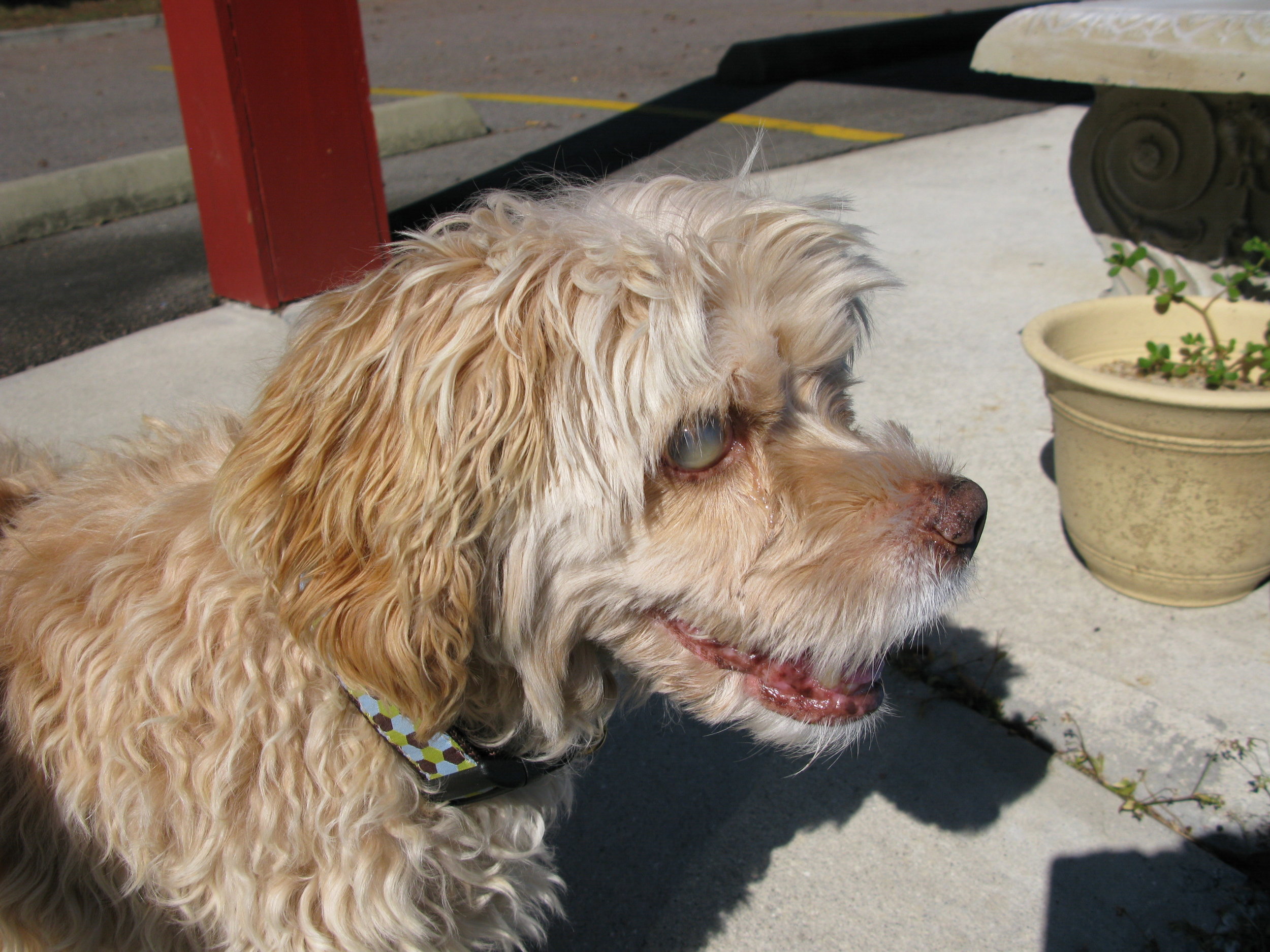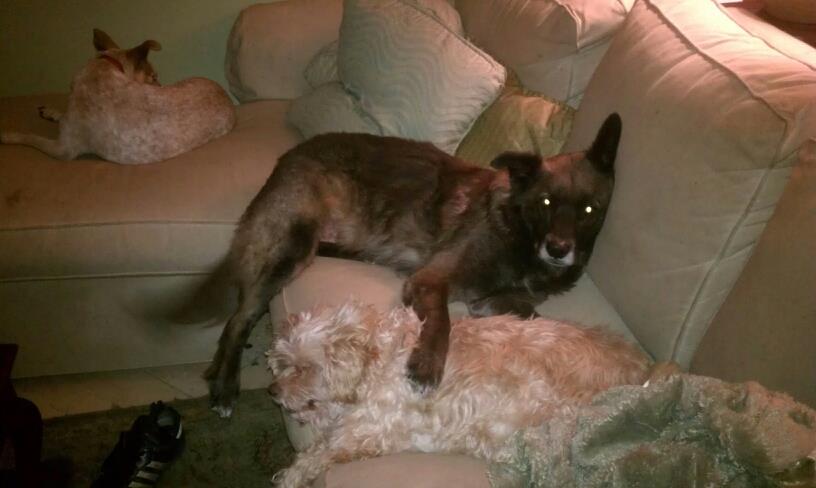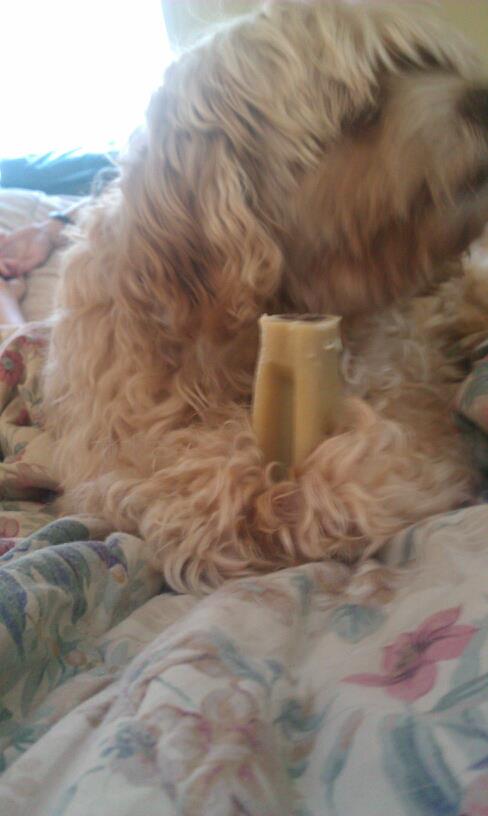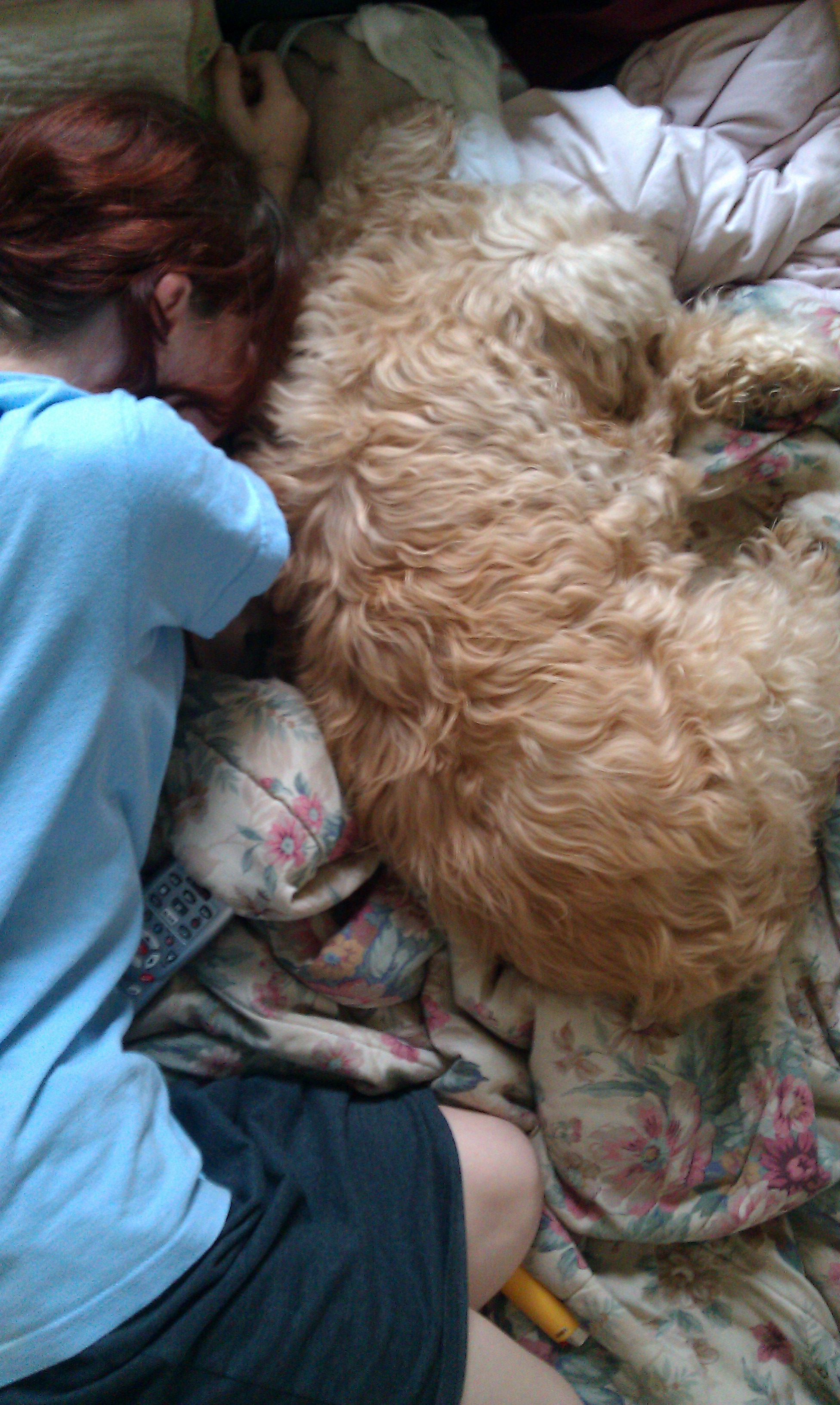10 Tips For Owning A Blind Dog
10 Tips on Caring for your Blind Dog
from a Vet Tech that has TWO!
Its Easier Than You Think
There is not much of a difference between canines with vision and those without.
As you get to know your blind dog better, or as you spend more time with your dog that has recently lost his or her vision, common sense will become the main tool for taking care of your beloved companion.
Eventually, living with a blind dog will feel so natural that you may forget it is blind at times! (it really is that easy and natural) And all of the adjustments that may be made will seem as if that is how life has always been. This is key in living with a blind dog. Approach the situation calmly, with the peace of mind that your dog is pretty much just like every other dog out there. Blindness is almost as little of a hindrance to a dog as losing a limb. Vision is a canine’s third strongest sense, after smelling and hearing. With this knowledge, you can implement your own ideas for regimens based on sound and smell for your dog.
Try to have fun with it; don’t let the challenges get you down. Your dog will benefit from this greatly, as they respond strongly to their owner’s emotions. Dogs are adaptive, and your dog will get used to its new life and will thrive wonderfully with your help.
Some Basic Steps
Arrange your house so that it has a clear path. The dog will memorize its home, so try not to rearrange furniture too often.
Speak to and pet your dog often. Be close. Voice and Touch is very calming and reassuring to your pup.
Clapping loudly is an excellent way to call your dog to you and to guide him or her anywhere. Stomping your feet works very well to guide the dog too if you choose.
Be patient. Some dogs are remarkable navigators, while others may need extra time or extra help learning things like getting through a door.
Repetition. For example, lead your dog from the den to its food bowl in the kitchen and back the same way every time. Very soon, your pup should be going on its own.
Try your best to eliminate areas where the dog could hurt itself, as it will be bumping into things head-on almost all the time. Face and eye injuries are a risk. An adorable clown-prince risk.
Independence. Your dog must learn to do things on its own. Encourage him/her until the task is done.
i.e. Using Stairs
Loud sounds, like clapping mentioned earlier, is a great idea. no leash is used, and the dog will enjoy the challenge of finding you.
When leaving your dog alone, turn on the TV or the radio, and give him a safe chew bone or toy. (not necessary, but of the two—sound and treat--i’d definitely put the emphasis on sound; radio or TV—not crazy loud. inside voices level)
Always let people know your dog is blind. It prevents startling and stressful encounters.
Be active. Take your dog places with you. Go on walks. Blind dogs especially benefit from the stimulation. Be vocal throughout the walk too.
Chewy.com is a GREAT place to get anything you need. I am a loyal customer! Great community over there…high in trust ♥ KEY
Most of All: Treat Your Dog Like A Normal Dog! This will take you SO FAR. They don’t know that there is anything wrong with them!
(when i saw my blind cockapoo Casey going through the trash, and then freeze when i sternly said her name…LOL! So adorable plus, the epiphany—if a dog is being mischievous! MISCHIEVOUS! then that dog needs to be treated like every other dog.)
Love, ASH
Casey: The Love Of My Life: RIP:
